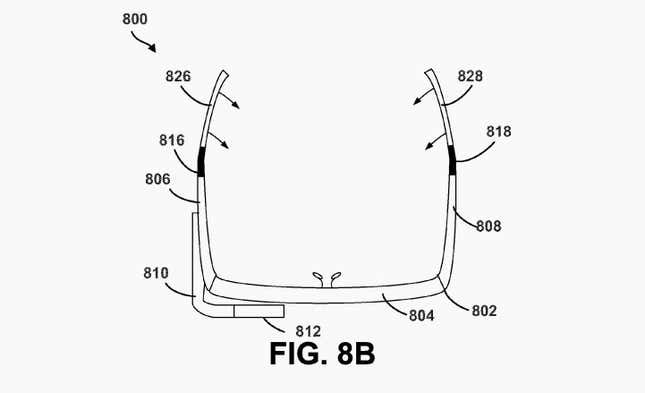Glasses have a habit of not staying put. They slide down your nose, and you have to push them back, then they slide back down again—it’s an unending game of cat-and-mouse that gets even worse if you’re doing anything remotely active, like running. A new patent from Google, however, might put an end to the constant adjustments.
The patent, awarded to Google today (Sept. 8), outlines a system built into a wearable device like Google Glass, that uses motors and motion detectors to automatically tighten or loosen the glasses’ arms depending on what the wearer is doing.
In Google’s idea, the new glasses would have an actuator—a little motor for controlling movement—in each arm that could bend the arms in or out as needed, rather like the way a bendy straw works. When the glasses detect that their wearer is bobbing up and down at an increased rate—while running, for example—the arms contract to grip the wearer’s head.

This could be a massive boon for athletes who choose not to wear their glasses when active, for fear of breaking them, or because they don’t like how bug-like they look in the current alternative. It’d definitely be an improvement over other potential solutions, from neoprene straps to running blind. And for non-athletes who suddenly break into motion for whatever reason, smart glasses could be a life-saver.
The actuators could also help solve the one-size-fits-all approach that many glasses have to fitting—if the glasses are too wide for someone’s face, the actuators could automatically resize the glasses so that they fit snugly.
The next version of Google Glass will reportedly be released in 2016, although it will just be for business customers, and will have few updates over the original Explorer addition. There’s no guarantee that Google will be looking to implement this particular patent in Glass—a Google spokesperson told Quartz that some patents turn into products, and some don’t.
But if the company does eventually develop this technology for Glass—or better yet, regular eyeglasses—it could bring an entirely new level of clarity to the short-sighted everywhere.
